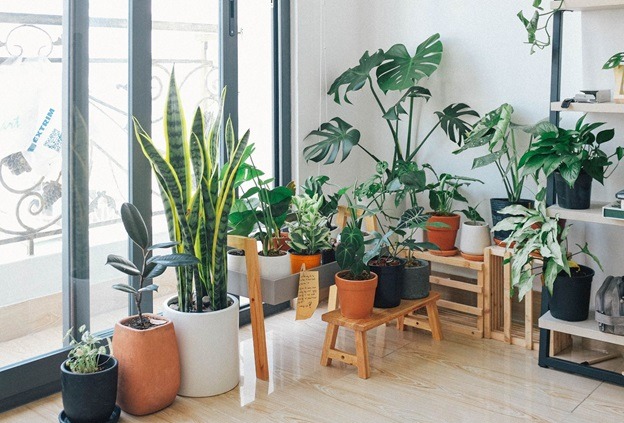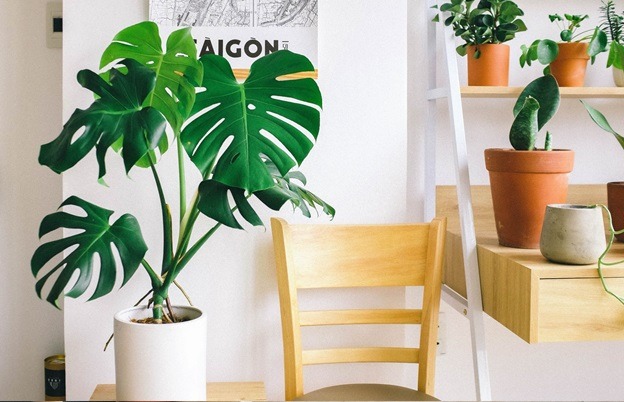Nothing beats a runny nose, a pair of swollen eyes, constant sneezing, and an unbearable cough. It’s the perfect combination, right? Wrong!
Yes, running through the medicine cabinet searching for the perfect answer to your uneasiness looks ideal right now. However, deep down inside, you know that these symptoms are typically associated with unsettled dust, seasonal pollen moving in, or little hints of smoke from somewhere. At times, cutting the grass can bring out the worst in allergies as well.
Dealing with air contaminants is a task of its own, and since we are now confined to our homes, it’s crucial that our work and play space is kept clean, habitable, and purified at all times.
Since more and more of us are gravitating towards going green and using more natural remedies to get the job done, what if we let you in on some fantastic ideas that allow you to use indoor plants which can purify the air? We have found you some excellent solutions that are inexpensive and easy to maintain so you can get the best of all worlds. If you’re keen on finding out more, get your box of tissues a little closer because you won’t want to miss a second of this.
Natural. All-Day, Every Day.
Carpets, household detergents, and synthetic materials are a few household components that could promote toxic contaminants in the air. Some may not think much of it now; however, a build-up can have severe health issues such as asthma in the long run.
Going natural over purchasing air purifiers online is beneficial in ways that go beyond your pocket. Air purifying plants can naturally absorb toxins in the air without even needing a lot of airflow to get the job done. They are cost-effective and host therapeutic elements such as improving a person’s mood, increasing productivity levels, better concentration span, memory, decreased stress levels, and less fatigue.
As far as concerns go, air-purifying plants have some perks in posing a harmful threat to pets and causing mold. However, this can be controlled with plants that won’t harm your pets and ensure that you have a controlled number of plants in your home to avoid too much humidity.
5 Easy to Maintain Air Purifying Plants for Indoors
Spider Plants (Chlorophytum Comosum)
This plant is fantastic for those looking for something that doesn’t require daily care. The plant grows very quickly and only needs watering roughly two to three times a week. For pet lovers, it’s a safe plant to have around the house.
If you’re particular in finding something that could complement your decor, then the spider plant does well in adding some brightness to your home with its white blossoms. The plant is also great for baskets that can hang around the house.
Dracaenas
This plant is fantastic for detailed design and home layout as the Dracaenas grow in different sizes, beautiful colors, and shapes. In terms of maintenance, you would just need to ensure that the soil remains damp with just enough water.
The plant is toxic and harmful to pets; however, this can only happen if the animal ingests the plant.
Golden Pothos (Epipremnum Aureum)
This plant is incredible for its adaptable nature to grow in different environments. The plant can grow to be quite tall; however, nothing a few trimmings can’t contain. It’s very effective in getting the job done and removing some toxins in the air and is very easy to maintain as the soil only requires water when dry.
Areca Palms (Chrysalidocarpus Lutescens)
Despite this plant being known to grow better outside, it can grow quite well indoors in rooms with a lot of light. It’s great for decor and not toxic to pets.
The plant is very effective; however, it may need a little checking from time to time to ensure that it never goes dry. But it’s less maintenance in the winter seasons.
Chrysanthemums (Chrysanthemum Morifolium)
This plant is highly recommended on the list of plants that work best as air purifiers; however, if you’re a pet owner, it may be best to stay away from this plant as it can be very toxic to pets.
In Conclusion
Using indoor plants has many benefits. You just need to find one that would work best with your current living situation. With solutions that are inexpensive and easy to maintain, decreasing toxins in your home will be effortless.
Remember that using these plants will be ineffective if you don’t maintain and clean your home regularly and stay away from harmful products that could pollute your home. Always keep windows open and avoid humidity as much as possible.


